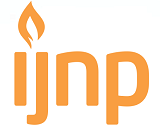The Effectiveness of Post-Stroke Patient Care Education Intervention in Stroke Caregivers: A Literature Review
DOI:
https://doi.org/10.18196/ijnp.v5i2.11437Keywords:
Education Effect, Intervention Education, Post Stroke Patients, Stroke Caregiver, Stroke Caregiver EducationAbstract
Background: Educational interventions about stroke have been carried out by the health workers, one of which is by the nurse. However, the majority of the interventions focus more on the stroke patients than the stroke caregivers. Meanwhile, post-stroke patient care education interventions are urgently needed by the caregivers. Therefore, the author intends to review current literature about post-stroke patient care education interventions on stroke caregivers.
Objective: This literature review aims to identify the effectiveness, methods, and impacts of daily care educational interventions for post-stroke patients on stroke caregivers.
Methods: The method utilized was by analyzing online databases about the related topics from reputable sources. Seven articles that met the inclusions criteria considering Randomized Controlled Trial (RCT) and Quasi-experimental design, time of publication, and English full text were obtained, and the results were presented.
Result: Educational intervention could be carried out by several methods, including direct education at the patient's bedside, lectures followed by questions and answers, and booklets, home visits or telephone follow-up. Educational interventions could improve caregiver knowledge and skills in providing daily care for post-stroke patients, reduce burdens, reduce anxiety and improve the caregiver's quality of life. Educational interventions also positively impacted post-stroke patients, including improving the quality of life, functional abilities and the ability to do daily activities (ADL), reducing cognitive impairment, anxiety, and depression.
Conclusion: Daily care education interventions for post-stroke patients can reduce the burden on the caregiver, either physical, psychological or social burdens.
References
Ali, E., El, A., Sheha, M., Abouda, A., Soultan, A., Malk, R. N., Mohammed, E., & Elsherbeny, M. (2020). Effect of a Planned Health Teaching on Improving Knowledge and Competence of Home Care Practice of Post Stroke Patient Among Caregivers ’ Achievement. 5(2), 51–69. https://doi.org/10.20849/ijsn.v5i2.761
Azizi, A., Khatiban, M., Mollai, Z., & Mohammadi, Y. (2020). Effect of Informational Support on Anxiety in Family Caregivers of Patients with Hemiplegic Stroke. Journal of Stroke and Cerebrovascular Diseases, 29(9), 105020. https://doi.org/10.1016/j.jstrokecerebrovasdis.2020.105020
Bakri, A., Irwandy, F., & Linggi, E. B. (2020). Pengaruh Pendidikan Kesehatan Tentang Perawatan Pasien Stroke Di Rumah Terhadap Tingkat Pengetahuan Keluarga. Jurnal Ilmiah Kesehatan Sandi Husada, 11(1), 372–378. https://doi.org/10.35816/jiskh.v11i1.299
Black, J., & Hawks, H. J. (2014). Keperawatan Medikal bedah : Manajemen Klinis Untuk Hasil Yang Diharapkan. (Joko Mulyanto dkk, Penerjemah) (Ed 8 Vol.3). Jakarta : Salemba Medika.
Dalvandi, A. (2018). Effect of Telenursing on Levels of Depression and Anxiety in Caregivers of Patients with Stroke : A Randomized Clinical Trial.
https://doi.org/10.4103/ijnmr.IJNMR
Deyhoul, N., Vasli, P., Rohani, C., Shakeri, N., & Hosseini, M. (2020). The effect of family-centered empowerment program on the family caregiver burden and the activities of daily living of Iranian patients with stroke: a randomized controlled trial study. Aging Clinical and Experimental Research, 32(7), 1343–1352.
https://doi.org/10.1007/s40520-019-01321-4
Dharma, K. K., Damhudi, D., Yardes, N., & Haeriyanto, S. (2018). Increase in the functional capacity and quality of life among stroke patients by family caregiver empowerment program based on adaptation model. International Journal of Nursing Sciences, 5(4), 357–364.
https://doi.org/10.1016/j.ijnss.2018.09.002
Hekmatpou, D., Baghban, E. M., & Dehkordi, L. M. (2019). The effect of patient care education on burden of care and the quality of life of caregivers of stroke patients. Journal of Multidisciplinary Healthcare, 12, 211–217.
https://doi.org/10.2147/JMDH.S196903
Junaidi. (2011). Stroke Waspadai Ancamannya.Yogyakarta: Andi Offset.
Kuncoro. (2017). Hubungan Kadar mean Platelet Volume Dengan Derajat KeparahanPasien Stroke Iskemik Fae Akut Di RSUD.DR.Moewardi Surakarta.
Masriani. (2014). Pengalaman Keluarga sebagai Caregiver dalam Merawat Pasien Strok di Rumah. Jurnal Keperawatan Padjadjaran, v2(n3), 161–170.
https://doi.org/10.24198/jkp.v2n3.4
Nurramadany. (2014). Model Kombinasi Latihan Kemampuan Fungsional Pada Penderita Osteoarthritis Lutut.
Pesantes, M. A., Brandt, L. R., Ipince, A., Miranda, J. J., & Diez-Canseco, F. (2017). An exploration into caring for a stroke-survivor in Lima, Peru: Emotional impact, stress factors, coping mechanisms and unmet needs of informal caregivers. ENeurologicalSci, 6, 33–50.
https://doi.org/10.1016/j.ensci.2016.11.004
Rahmawati et al. (2019). Gambaran Self-management Pada Pasien Stroke Yang Menjalani Rawat Jalan. 6(6).
RISKESDAS. (2013). RISET KESEHATAN DASAR. https://www.litbang.kemkes.go.id/laporan-riset-kesehatan-dasar-riskesdas/2013
RISKESDAS. (2018). Laporan Riskesdas 2018. In Journal of Chemical Information and Modeling 53(9). http://www.yankes.kemkes.go.id/assets/downloads/PMK No. 57 Tahun 2013 tentang PTRM.pdf
Yenni. (2011). Hubungan dukungan keluarga dan karakteristik lansia dengan kejadian stroke pada lansia hipertensi di wilayah kerja Puskesmas Perkotaan Bukittinggi. 111.
Yu, F., Li, H., Tai, C., Guo, T., & Pang, D. (2019). Effect of family education program on cognitive impairment, anxiety, and depression in persons who have had a stroke: A randomized, controlled study. Nursing and Health Sciences, 21(1), 44–53.
https://doi.org/10.1111/nhs.12548
Zainul. U. A. (2018). Peran keluarga terhadap kesehatan jiwa lansia di wilayah kerja puskesmas samata dan puskesmas bontoramba.
Zawawi, N. S. M., Aziz, N. A., Fisher, R., Ahmad, K., & Walker, M. F. (2020). The Unmet Needs of Stroke Survivors and Stroke Caregivers : A Systematic Narrative Review. 29(00).
Downloads
Additional Files
Published
Issue
Section
License
License
Articles published in the IJNP (Indonesian Journal of Nursing Practices) are licensed under a Attribution 4.0 International (CC BY 4.0) license. You are free to:
- Share — copy and redistribute the material in any medium or format.
- Adapt — remix, transform, and build upon the material for any purpose, even commercially.
This license is acceptable for Free Cultural Works. The licensor cannot revoke these freedoms as long as you follow the license terms. Under the following terms:
Attribution — You must give appropriate credit, provide a link to the license, and indicate if changes were made. You may do so in any reasonable manner, but not in any way that suggests the licensor endorses you or your use.
- No additional restrictions — You may not apply legal terms or technological measures that legally restrict others from doing anything the license permits.
Copyright
Authors who publish with IJNP (Indonesian Journal of Nursing Practices) agree to the following terms:
- Authors retain copyright and grant IJNP (Indonesian Journal of Nursing Practices) the right of first publication with the work simultaneously licensed under an Attribution 4.0 International (CC BY 4.0) that allows others to remix, adapt and build upon the work with an acknowledgment of the work's authorship and of the initial publication in IJNP (Indonesian Journal of Nursing Practices).
- Authors are permitted to copy and redistribute the journal's published version of the work (e.g., post it to an institutional repository or publish it in a book), with an acknowledgment of its initial publication in IJNP (Indonesian Journal of Nursing Practices).














